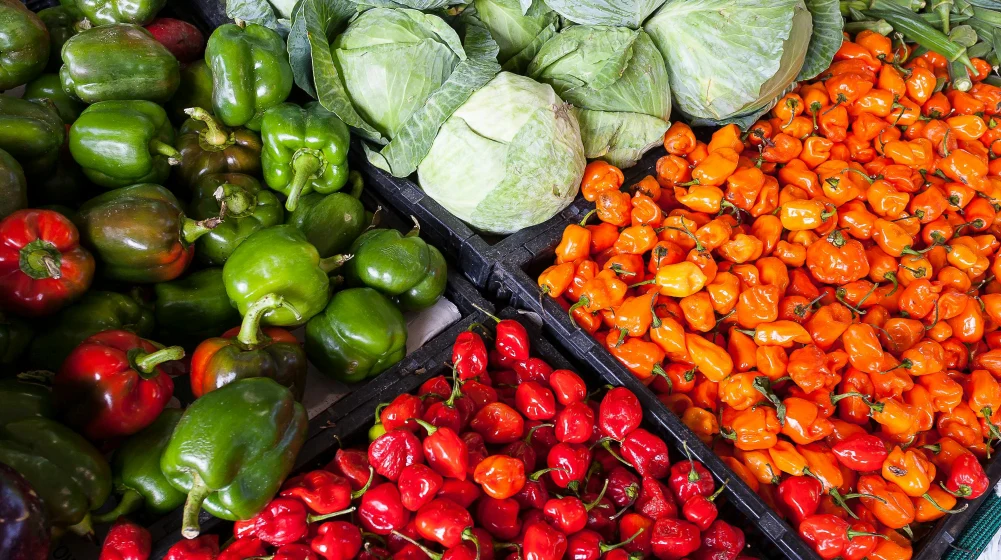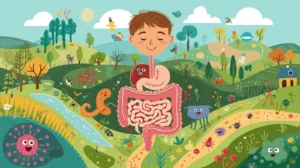Detoxification is a process by which the body eliminates or neutralizes harmful substances. While the concept of detoxification is scientifically valid and refers to processes that occur naturally in the body, there are several myths and misconceptions surrounding detox diets and practices. Here are some common detox-related myths:
Myth: Detox Diets Can Rid the Body of Toxins:
Reality: The human body has its own built-in detoxification systems, primarily the liver and kidneys. Detox diets or products claiming to “cleanse” the body of toxins are often not supported by scientific evidence. The body’s natural detoxification processes are generally effective when supported by a healthy lifestyle.
Myth: Detox Diets Lead to Rapid Weight Loss:
Reality: While some detox diets may result in temporary weight loss, much of this is often due to water weight loss and not fat loss. The weight lost during detox is typically regained once normal eating patterns are resumed.
Myth: Detox Diets Boost Energy Levels:
Reality: Some detox programs may leave individuals feeling fatigued due to a lack of essential nutrients and calories. The body needs a balance of nutrients for optimal energy levels, and extreme dieting can have the opposite effect.
Myth: Detox Diets Can Cure Diseases:
Reality: Detox diets are not a cure for serious medical conditions. While a healthy diet is important for overall health, extreme detoxification measures are not substitutes for medical treatments.
Myth: Sweating Eliminates Toxins:
Reality: While sweating is a natural bodily process, the idea that sweating excessively through saunas or extreme exercise eliminates a significant amount of toxins is exaggerated. The primary function of sweating is to regulate body temperature.
Myth: Detox Foot Pads Remove Toxins:
Reality: There is no scientific evidence to support the claim that detox foot pads can draw out toxins from the body. The discoloration observed on the pads is likely a reaction to sweat and other substances.
Myth: You Need Special Products for Detoxification:
Reality: The body’s natural detoxification processes are supported by a balanced and healthy diet. There is typically no need for special detox products or supplements, and some of these products can be harmful.
Myth: Detox Diets Need to Be Extreme to Be Effective:
Reality: Extreme detox diets that involve severe caloric restriction or the elimination of entire food groups can be harmful and are not necessary for supporting the body’s natural detoxification processes.
It’s essential to approach detoxification with a critical mindset and be wary of extreme or restrictive practices. Instead, one should focus on maintaining a balanced and nutritious diet, staying hydrated, getting regular exercise, and ensuring adequate sleep, which are all important factors in supporting the body’s natural detoxification mechanisms. If you have concerns about toxins or your health, it’s advisable to consult with your Dietician.
Phases of detoxification
Detoxification in the body generally involves a series of complex biochemical processes that occur primarily in the liver. The liver is a central organ in detoxification, but other organs and systems, such as the kidneys, lungs, and gastrointestinal tract, also play essential roles. The detoxification process can be broadly divided into two main phases: Phase I and Phase II.
Phase I: Biotransformation
Activation: In this phase, enzymes in the liver (primarily cytochrome P450 enzymes) work to activate or “bio-transform” toxic substances. This often involves converting fat-soluble toxins into more water-soluble forms, making them easier to eliminate.
Oxidation, Reduction, and Hydrolysis: These are the three main types of reactions that occur in Phase I. Enzymes catalyze these reactions, transforming various compounds. Oxidation reactions involve the addition of oxygen, reduction reactions involve the loss of oxygen, and hydrolysis reactions involve the breaking of chemical bonds with water.
Creation of Reactive Intermediates: While these reactions make toxins more water-soluble, they can also produce reactive intermediates that, if not quickly processed in Phase II, can be harmful. Antioxidants, such as glutathione, play a crucial role in neutralizing these reactive intermediates.
Phase II: Conjugation
Conjugation Reactions: This phase involves the combination (conjugation) of the water-soluble products from Phase I with specific molecules, making them even more water-soluble and less harmful.
Formation of Water-Soluble Compounds: Conjugation reactions include processes like methylation, sulfation, glucuronidation, and amino acid conjugation. These reactions result in the formation of water-soluble compounds that are easily excreted from the body.
Elimination: The water-soluble compounds formed in Phase II are transported to the kidneys or the bile for elimination from the body. They are eventually excreted in urine or feces.
Other Detoxification Pathways
While Phase I and Phase II are the primary phases of detoxification, there are additional systems involved in detox processes:
Antioxidant Defense: Antioxidants, including vitamins like C and E, as well as enzymes like superoxide dismutase, play a role in neutralizing free radicals produced during detoxification.
Gastrointestinal Detoxification: The gut plays a crucial role in detoxification, as it absorbs nutrients and eliminates waste. The gut microbiota can also influence detoxification processes.
Lung and Skin Elimination: The lungs excrete volatile substances, and the skin can eliminate certain toxins through sweating.
It’s important to note that the body’s detoxification system is continuous and dynamic. While certain lifestyle factors, such as a balanced diet, hydration, and regular exercise, can support these processes, extreme detox diets or interventions are generally unnecessary and may even be harmful. Always seek professional help before making significant changes to your diet or lifestyle.
Are boiled veggies really detoxifying your body?
So people, let me tell you this that the term “detoxifying” can be misleading, as it often implies the removal of toxins from the body. In reality, the body has its own highly efficient mechanisms, primarily involving the liver and kidneys, for detoxification. These organs break down and eliminate toxins naturally.
Understand, boiled vegetables can be a nutritious and healthful part of a balanced diet, and they offer various benefits. Here’s how they contribute to overall health:
Nutrient Content: Vegetables are rich in vitamins, minerals, fiber, and antioxidants, which are essential for overall health. Consuming a variety of vegetables provides the body with the nutrients it needs to function optimally.
Hydration: Boiled vegetables retain water content, contributing to hydration. Proper hydration is important for various bodily functions, including digestion and the elimination of waste.
Digestibility: Boiling vegetables can make them easier to digest, which can be beneficial for individuals with sensitive digestive systems. Cooking can break down cell walls and make certain nutrients more accessible for absorption.
Low in Calories and Fat: Boiled vegetables are generally low in calories and fat, making them a healthy choice for those looking to manage their weight and maintain a balanced diet.
Fibre Content: Vegetables are a good source of dietary fibre, which supports digestive health and helps regulate bowel movements.
While boiled vegetables contribute to overall health, the idea that they have a specific detoxifying effect beyond the body’s natural processes is not entirely accurate. The liver and kidneys are the primary organs responsible for detoxification, and they operate continuously to eliminate waste and toxins.
If you’re interested in supporting your body’s natural detoxification processes, focus on maintaining a well-rounded, plant-based diet that includes a variety of vegetables, fruits, whole grains, and lean proteins. Staying hydrated, getting regular exercise, and avoiding excessive consumption of processed foods and alcohol also contribute to overall health and well-being.
It’s important to approach health and nutrition with a holistic mindset, emphasizing a balanced and sustainable lifestyle rather than relying on specific foods or practices for detoxification. If you have specific health concerns or questions about your diet, consider consulting with your Dietitian for personalised advice.




